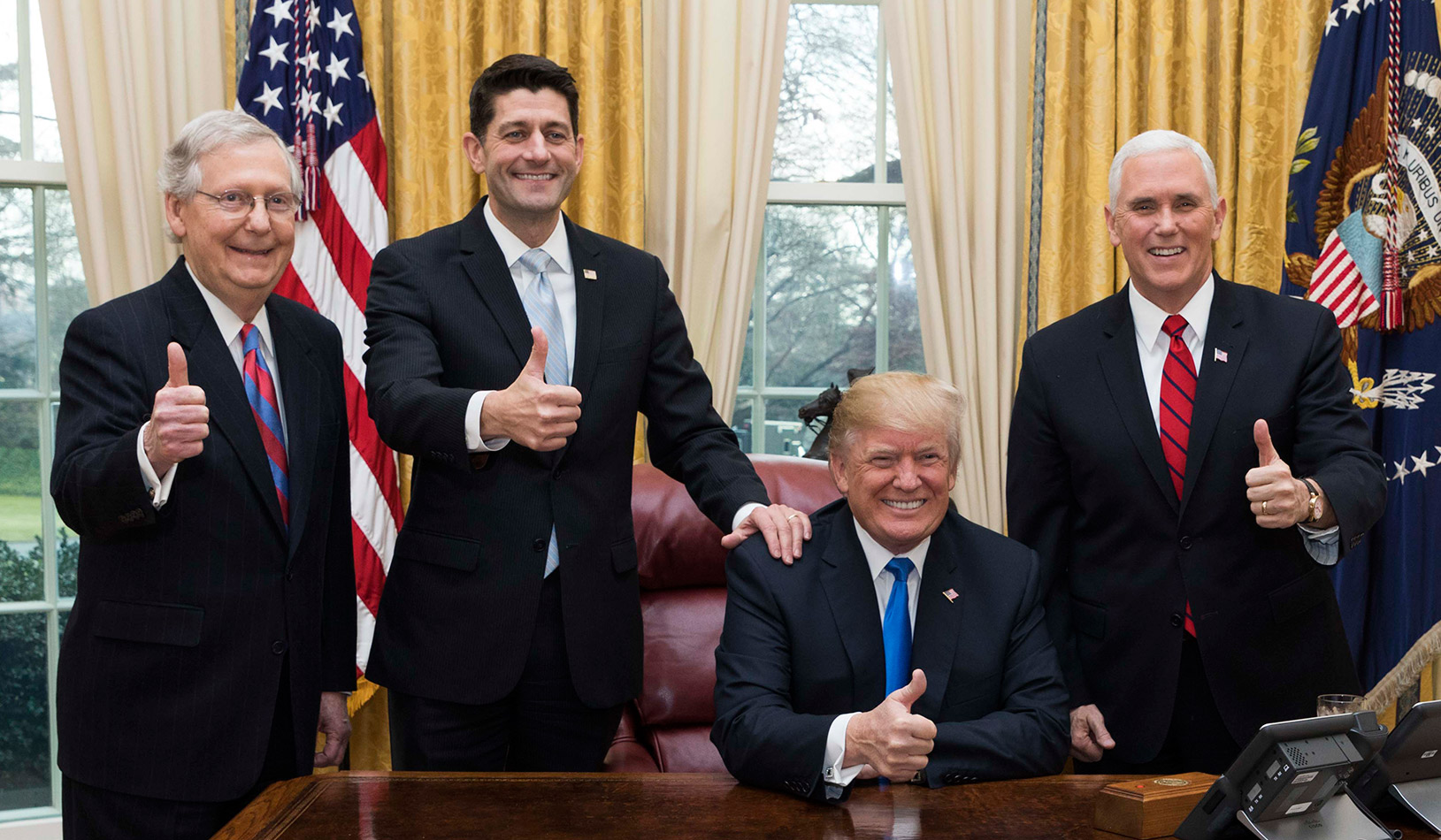
Photo Credit: The White House, Public Domain
Just prior to Christmas, Republicans banded together in the house to pass a bill that would allow people with concealed carry permits to travel across state-lines with their weapons. Under this bill, a person who receives their permit in a gun-haven like Texas would be able to bring his gun into a stricter state, like California, without being subject to its laws. The bill, entitled the Concealed Carry Reciprocity Act of 2017, passed mostly on party-lines, with a vote of 231-198. Throwing salt on the wound, Republicans added a provision requiring better reporting of criminal and mental health backgrounds. Some think this was an effort to cast Democrats as being against background checks.
Glaring Contradiction
Although this bill will most likely fall flat in the Senate, it highlights a glaring feature of the GOP. The conservative party champions states’ rights issues only when it suits their purposes. This is not a new phenomenon. We saw it earlier in 2017, when Republicans threw states’ rights out the window in order to come down on so-call “sanctuary cities.” Trump and Jeff Sessions even went so far as to cut off certain funding to those localities.
In 2015…
Even before Trump took office, Republicans have been flaunting this glaring contradiction. In 2015, Republicans opposed provisions in Dodd-Frank giving more power to state regulations, which in the case of consumer protections, tend to be stronger than federal rules. The GOP preferred (and continues to prefer) the weaker rules of federal regulators. Why? It would appear the GOP has a vested interest in weak banking regulations, most likely because banks and their owners tend to fund GOP political campaigns.
That same year, people like Chris Christie spoke out about the rise of recreational marijuana. Vying for the Presidency, Christie said, “I will crack down and not permit it.” That issue has re-emerged with renewed vigor. The Department of Justice recently announced its decision to withdraw an Obama-era guidance asking federal prosecutors to leave marijuana states alone. Now, US attorneys can enforce federal statutes proscribing marijuana-use regardless of the state laws. Sessions plays the fool when asked about states’ rights: “I do not believe there’s any argument, because a state legalized marijuana, that the federal law against marijuana is no longer in existence.”
Environmental Context
The same principal applies in the environmental arena. When he’s rescinding an Obama-era regulation, EPA Administrator Scott Pruitt advances the argument that the former president overreached his executive powers. But Pruitt says little of executive powers when attempting to undo a waiver allowing California to have stricter emissions standards.
A Note on Politics and Money
So why do Republicans turn their backs on a principle that seems so important to them? The most obvious answer is money. Take, for instance, the Concealed Carry Reciprocity Act of 2017. That law has been touted by the NRA as a “watershed moment.” And the NRA, it is commonly known, has sent millions of dollars to Republican coffers. There’s no disputing that this avalanche of campaign funding has had some effect on congressional voting. However, the manner in which that money sways Republicans is a matter of debate.
As observed by Vox, Congress doesn’t necessarily trade votes for money. Instead, it’s more of a pay-to-play system where corporate funders get a seat at the table by offering large sums of cash. That John McCain has received over $7 million in campaign contributions from the NRA doesn’t necessarily mean that he is being bribed. It does mean, however, that the NRA can make office appointments and that the NRA can bend the Congressman’s ear whenever it wants. The average citizen, by contrast, does not have such liberties.
Obama’s Musing
Obama was well aware of this trend in politics. In the Audacity of Hope, he wrote: “I know that as a consequence of my fund-raising I became more like the wealthy donors I met, in the very particular sense that I spent more and more of my time above the fray, outside the world of immediate hunger, disappointment, fear, irrationality, and frequent hardship of the other 99 percent of the population — that is, the people that I’d entered public life to serve.”
But when it comes down to it, the line between bribery and pay-to-play politics is wearing thin. From the standpoint of the average citizen, the difference is moot. From here, it appears as if money dictates votes, regardless of ideological consistency.



Leave a Comment